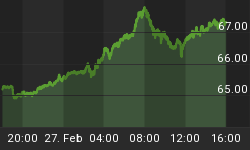A day after JP Morgan moved to downgrade China stocks, calling a “full-blown trade war” for 2019 with the U.S., Asian tech stocks are taking a beating, hitting a 15-month low Friday on escalating tensions.
News from Bloomberg that three years ago, China infiltrated American companies with a hardware hack kicked the MSCI AC Asia Pacific Infotech Index to its lowest since July last year, and it coincided with harsh criticism in a keynote speech from Vice President Mike Pence on all things Chinese.

(Click to enlarge)
For investors, this indicated that things are about to get much worse—for real—and the supply chain from Asia to the U.S. feels more threatened than ever.
On Thursday, JPMorgan lowered its rating for Chinese equities to neutral from overweight, predicting a turn for the worse in the trade war will hit China’s economy next year, and as the dollar strengthens against a weakening yuan.
The MSCI China Index is already down 24 percent from its January peak, and JPMorgan has cut its targets and earnings for the index for this year, though does expect a rebound to 85 points by the end of 2018.
"Higher tariffs are squeezing Chinese manufacturing’s profit margin, reducing the investment incentive and hiring, which would then drag on consumption via reduced income," JPMorgan strategists wrote in a note to clients.
JPMorgan has lowered its economic growth forecast for China next year from 6.2 percent to 6.1 percent, essentially suggesting that the trade war will account for a 1-percentage-point cut in economic growth.
In the meantime, China tech stocks are feeling the pain—chief among them, Lenovo Group Ltd and ZTE Corp.
Computer make Lenovo lost up to 23 percent Friday before paring some gains ahead of closing. By the close, it had lost 15 percent—bigger than anything it’s seen in close to 10 years. Related: Markets Open Slightly Lower Ahead Of Monthly Job Data
Lenovo’s downward spiral was sparked by a Bloomberg BusinessWeek report claiming that data center equipment operated by Amazon Web Services and Apple may have been used for surveillance by the Chinese government through the insertion of tiny microchips during manufacturing. Both Amazon and Apple have vehemently denied the report. The report also claimed that the U.S. government has been investigating this since 2015 and that the target of the investigation is a company called ‘Super Micro’ out of China.
Computer-maker Lenovo tried to calm the storm here by assuring in a statement that Super Micro is not a Lenovo supplier, but the stock took a major hit nonetheless. For Lenovo stock, the uncertainty is particularly high because it generated over 30 percent of revenue from North America in the most recent fiscal year.
ZTE Corp. also lost 11 percent Friday, though it has not clear connection to the alleged hacking investigation. However, any time anything like this pops up, ZTE will be a target because of the ongoing over this company’s practices. Making matters worse, a U.S. judge ruled on Wednesday that ZTE violated a probation deal after it pleaded guilty in March 2017 to conspiring to evade U.S. sanctions by illegally shipping U.S. goods and tech to Iran, Reuters reports.
All big Chinese tech stocks are being hit, regardless of whether they bear any connection to the alleged ‘spy chips’.
“Electronics produced in China may be viewed unsafe due to this news, and tech shares are falling in general because of that,” Ray K W Kwok, an analyst at CGS-CIMB Securities Hong Kong Ltd., told Bloomberg.
At the same time, the trade war shows no sign of letting up, and while the market has largely ignored the potential impact of this so far, JPMorgan cautions that “there is no clear sign of mitigating confrontation between China and the U.S. in the near term”.
By Michael Kern for Safehaven.com
More Top Reads From Safehaven.com:
















